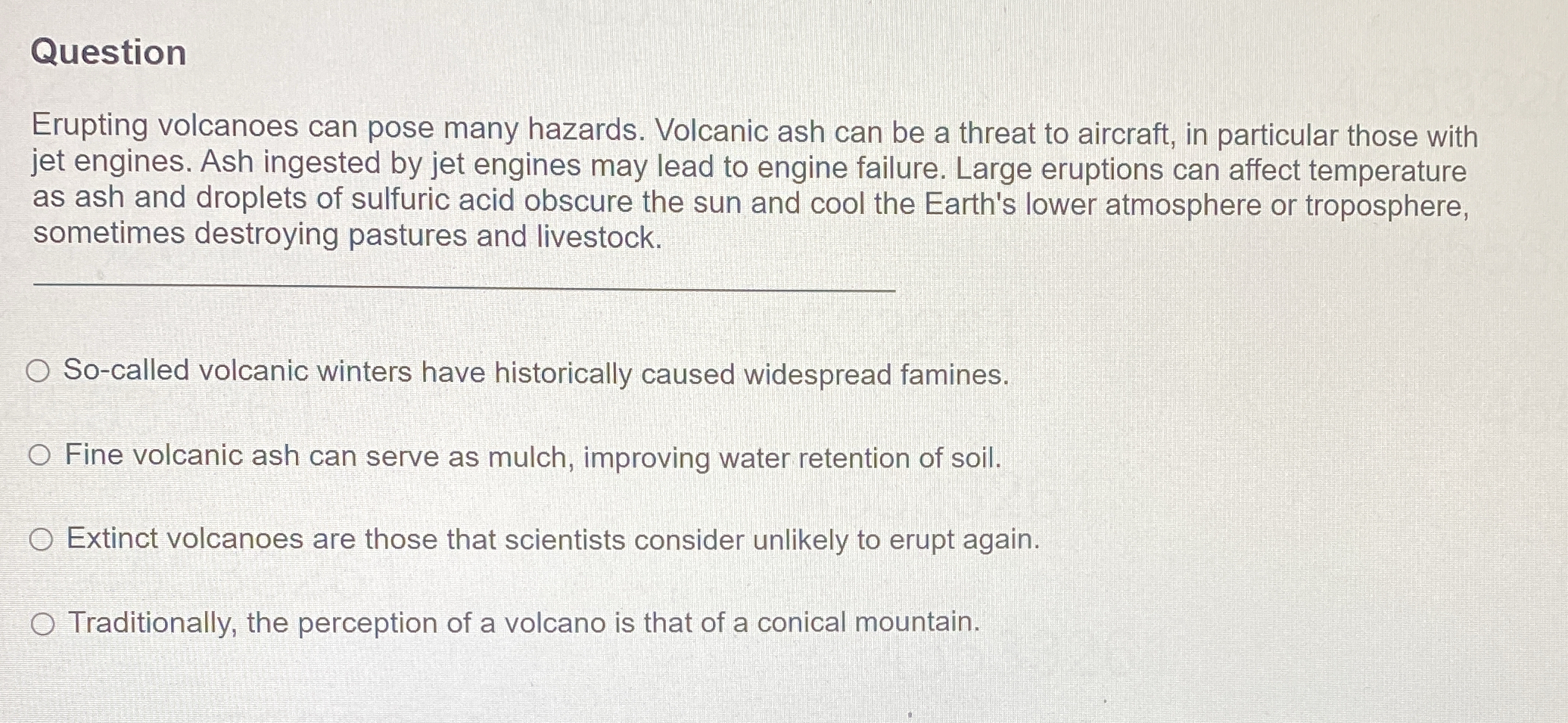Erupting volcanoes can pose many hazards. Volcanic ash can be a threat to aircraft, in particular those with jet engines. Ash ingested by jet engines may lead to engine failure. La... Erupting volcanoes can pose many hazards. Volcanic ash can be a threat to aircraft, in particular those with jet engines. Ash ingested by jet engines may lead to engine failure. Large eruptions can affect temperature as ash and droplets of sulfuric acid obscure the sun and cool the Earth's lower atmosphere or troposphere, sometimes destroying pastures and livestock. - So-called volcanic winters have historically caused widespread famines. - Fine volcanic ash can serve as mulch, improving water retention of soil. - Extinct volcanoes are those that scientists consider unlikely to erupt again. - Traditionally, the perception of a volcano is that of a conical mountain.

Understand the Problem
The question discusses the hazards associated with erupting volcanoes, particularly focusing on the effects of volcanic ash. It presents multiple statements related to volcanic activity, and the objective is likely to identify which statements are true or relevant based on the provided information.
Answer
So-called volcanic winters have historically caused widespread famines.
The final answer is 'So-called volcanic winters have historically caused widespread famines.'
Answer for screen readers
The final answer is 'So-called volcanic winters have historically caused widespread famines.'
More Information
Volcanic winters occur when large eruptions release ash and sulfuric acid droplets that obscure sunlight, leading to temperature drops and agricultural impacts.
Tips
Ensure to connect the information from the passage to the statements provided.
AI-generated content may contain errors. Please verify critical information